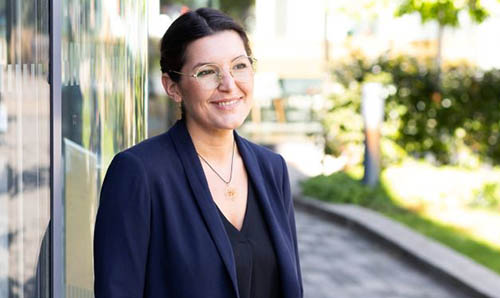Cassandra Bowkett
Lecturer in HRM and Employment Studies

Cassandra joined the Work & Equalities Institute in 2021 and one of her current research projects is a scoping study looking at the impact of automation, robotics and digitisation in food and steel manufacturing.
In particular, she is interested in the role of HR managers in supporting how these technologies are adopted, such as in up or re-skilling existing workers, or enabling worker participation in the process. As she says: "One of the big issues is that many workers in manufacturing industries see themselves as craftsmen so for some there is a natural reluctance to embrace new technologies, many of which are now highly automated."
Manufacturing interest
Cassandra has long been interested in the manufacturing sector, and her PhD in Human Resource Management specifically looked at how sub-sectors within manufacturing ensure they have the skills they need in the future.
As she explains: "My PhD was built around studying multinationals in the aerospace sector and at how they shape skills development and undergraduate degrees. The main finding of my research was that national employment systems around engineering certification still very much shape firm behaviour. At the same time these firms also continue to play a really important role in helping to shape curriculum content and shaping engineering skills development."
She says a major shift over the past decade has been that multinational HQs are now starting to manage HR and training relationships strategically across many different countries. "This raises questions about how large firms are shaping training needs and how universities are having to adapt their courses too."
Canada posting
After completing her PhD Cassandra took up a role as a post-doctoral researcher at HEC Montreal Business School where she worked with Professor Christian Lévesque on a project studying HRM innovations within regional aerospace clusters in Canada, Mexico, Belgium, the US and Spain.
"I looked at the impact of new technologies and Industry 4.0, and specifically at how they are transforming the future skills needed by the Canadian aerospace industry, focusing on the Montréal and Toronto clusters."
"I was responsible for data collection and analysis, and for written outputs from the broader project. What we found was that there are multiple ways that firms in the sector can benefit from new technologies, and as such there needs to be deeper discussions about how technologies are implemented and their impact on the wider workforce."
Skills shortages
Cassandra says ultimately there is always a need to make jobs interesting, particularly in industries facing labour and skill shortages.
"The danger is that if you automate processes too much then highly qualified machinists can end up just pressing buttons. So, in aerospace for example, if these machinists who once had very skilled jobs find that their skill depth is significantly reduced, they are effectively deskilled. They are no longer master craftsmen."
She argues that to address issues around recruitment and retention, firms need to consider what technologies they adopt, and how these technologies are implemented as these strategic choices have implications for job design and the quality of work.
"For instance, some companies implemented Industry 4.0 in ways that led to some machinists being upskilled into programmers and faced challenges around how to build bespoke training packages to support upskilling skilled machinists. Other companies chose instead to hire external programmers and they faced recruitment and operational challenges caused by programmer knowledge gaps due to a lack of shopfloor experience."
Future projects
Looking ahead Cassandra will be expanding her research work at the WEI, first by building on her scoping project on automation, robotics and digitisation in food and drink manufacturing, and the role of HR.
She is also involved in the ESRC-funded Digital Futures at Work Research Centre project that runs until 2023. As part of this project, she joins the DIGIT research community as an Associate Fellow and will be collaborating with the Institute for the Future of Work (IFOW) where she is a Research Fellow. Her expertise in future skills and new technology will strengthen the existing expertise at the WEI within the business transformations and work futures theme.
